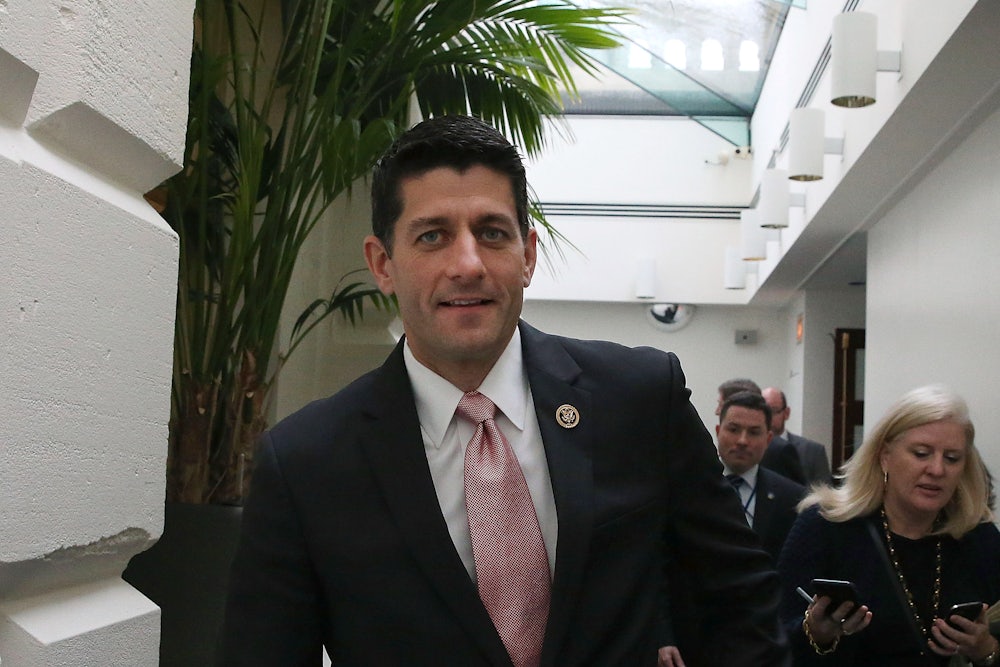Ryan has a 60-seat majority in the House—it would take a political change of seismic proportions to imperil it. (After all, even the 1994 “revolution” only won a net total of 54 seats.) But as speaker of the House, Ryan has a duty to his members, many of whom are dependent on the top of the ticket; it is also Ryan’s duty to protect the Republican majority in the House. As Politico reports this morning, that sense of obligation is the only thing keeping Ryan from pulling his endorsement of Trump. Doing so, he fears, could aggravate the GOP’s civil war, cost many Republicans their seats, and (presumably) imperil his speakership. For the next 28 days, Ryan’s goal is to keep Trump at arm’s length—close enough to help the GOP retain its sizable majority, but not so close to burn any of his members.
But after Ryan announced on Monday that he won’t campaign for Trump in the final month of the election, Trump’s criticism of Ryan has ratcheted up. Trump is running against both parties now, which is what he did in the primaries. “You have people that can’t fix the budget and then they start talking about their nominee, but they can’t fix the budget,” Trump said at a rally on Monday. “Isn’t it really sad that we don’t have stronger leadership on both sides? But that’s going to change if we win November 8th. Believe me, it’s going to change fast.” Trump has also hit Ryan on Twitter over the last 24 hours:
Our very weak and ineffective leader, Paul Ryan, had a bad conference call where his members went wild at his disloyalty.
— Donald J. Trump (@realDonaldTrump) October 11, 2016
Paul Ryan should spend more time on balancing the budget, jobs and illegal immigration and not waste his time on fighting Republican nominee
— Donald J. Trump (@realDonaldTrump) October 10, 2016
Despite winning the second debate in a landslide (every poll), it is hard to do well when Paul Ryan and others give zero support!
— Donald J. Trump (@realDonaldTrump) October 11, 2016
Trump did not win every poll.
This is what happens when a candidate is losing an election badly. But Ryan and Trump are both preparing to play the post-election blame game. Ryan is laying the groundwork to argue that Trump lost because he was not a real conservative, a weak candidate built up by the media who cost him his huge majority in the House. And Trump is gearing up to argue that he lost because disloyal members of the establishment connived to keep him out.
